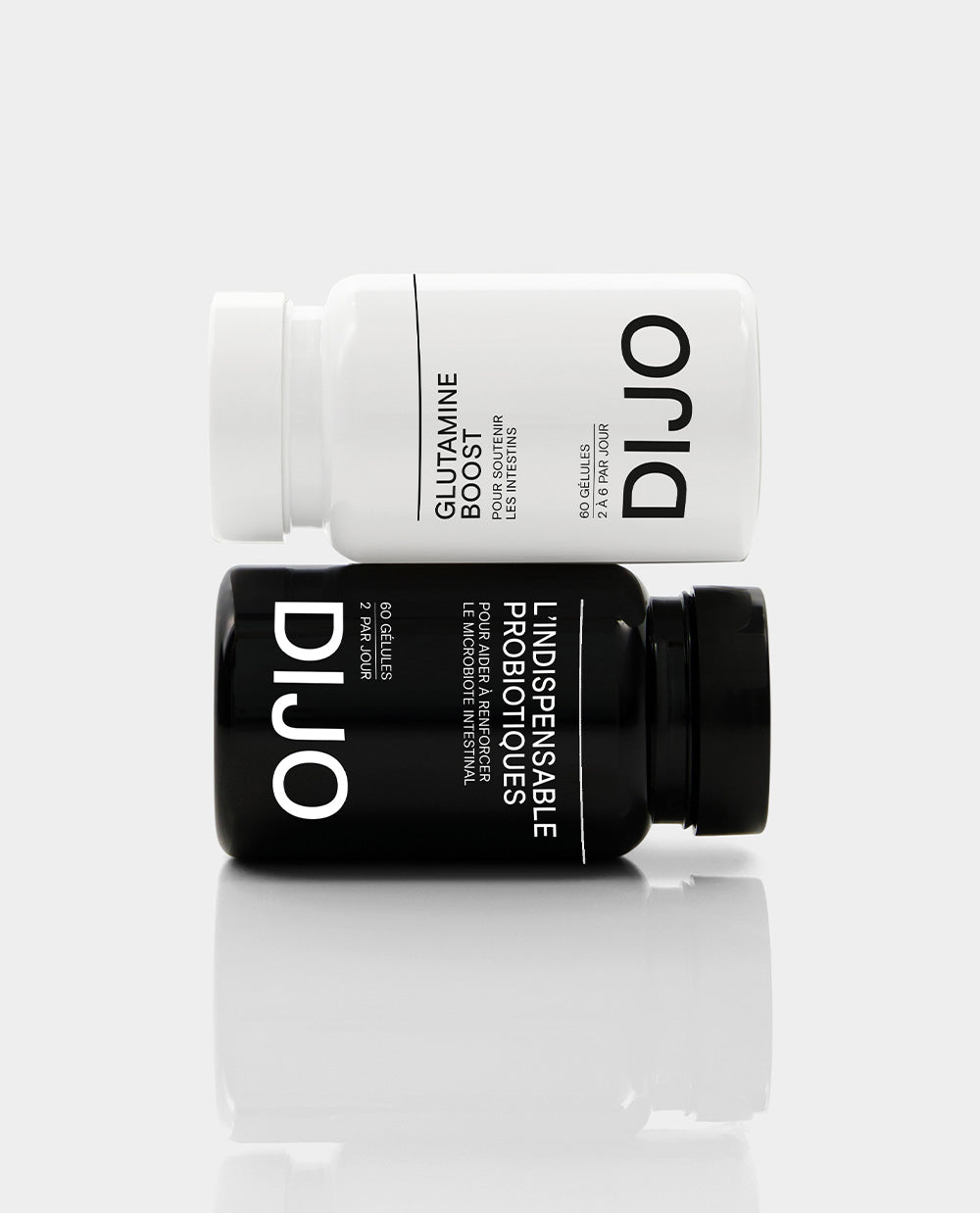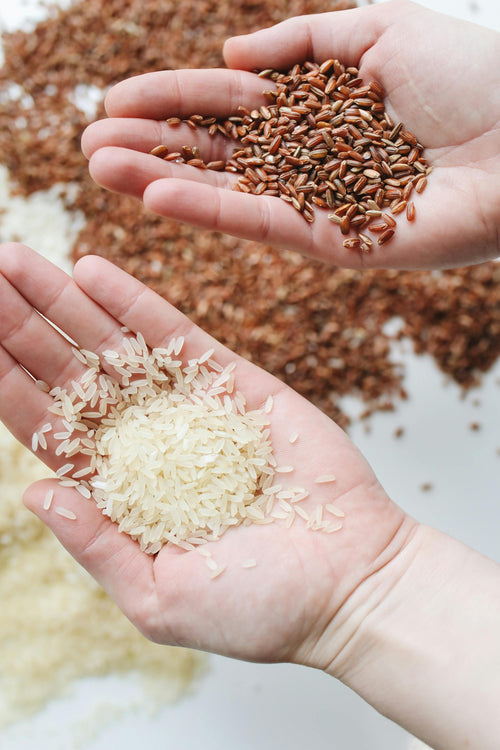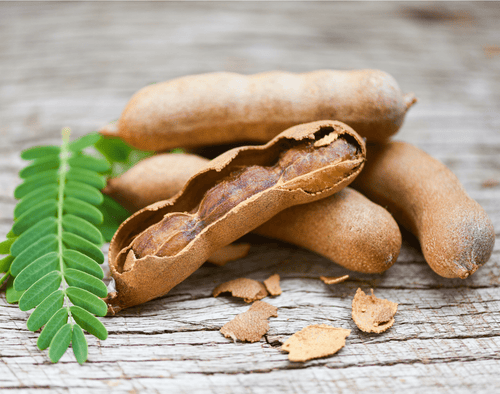
What you must remember :
- Bifidobacterium is a group of bacteria naturally present in our body.
- It is one of the most abundant and beneficial bacteria in our intestinal microbiota.
- They play a role in preserving digestive transit and the immune system
- For good effectiveness, it is preferable to choose probiotics containing bifidobacterium (1 to 3 different strains)
What is bifidobacterium?
Bifidobacterium is a group of bacteria naturally present in the digestive system. It was discovered at the end of the 19th century and belongs to the genus Actinobacteria. Just like lactobacillus , this genus is one of the main constituents of our intestinal microbiota . These anaerobic bacteria belong to the lactic acid bacteria family.
Due to their multiple beneficial effects, certain strains of bifidobacterium are considered probiotic microorganisms.
Strains are often named as follows: “B. longum”, the B meaning Bifidobacterium and “longum” corresponding to the name of the strain.
Different types of bifidobacteria
Currently, more than 80 strains are listed within the bifidobacterium group and this continues to increase.
Among the strains most commonly detected in human stools: B. catenulatum, B. pseudocatenulatum, B. adolescentis, B. longum, B. breve, B. bifidum, B. animalis, and Bifidobacterium dentium.
The benefits of bifidobacterium
These bacteria, constituting bifidobacterium, an integral part of the microbiota, have benefits quite similar to this set of microorganisms.
Bifidobacterium and digestive functions
The main action of bifidobacterium relates to digestive functions. Supplementation will help bring these good bacteria to the body and thus balance the intestinal microbiota. By balancing the population of this flora, this will help strengthen the intestinal wall which can be altered, leading to intestinal hyperpermeability . This hyperpermeability can be the cause of poor assimilation of nutrients and the passage of toxic compounds into the blood, which can cause local and then global inflammation of the body.
In addition, these bifidobacteria allow better digestion of certain indigestible carbohydrates.
Bifidobacterium and digestive disorders
Numerous scientific studies identify the effects of bifidobacterium on reducing digestive disorders. Diarrhea is notably the first digestive disorder mentioned in this type of study.
Likewise, 30 days of bifidobacterium supplementation has shown convincing effects in improving the severity and symptoms of irritable bowel syndrome (IBS).
Bifidobacterium and the immune system
The intestinal microbiota interacts with the immune system, which helps regulate the production of immune cells and react in the event of inflammation in the body. Likewise, as part of a medical treatment, a good concentration of bifidobacterium will help support immune cells which may be altered or overloaded.
Bifidobacterium and colorectal cancer
According to certain scientific studies, a good balance of bifidobacterium may be associated with prevention of colorectal cancer. Indeed, it leads to a reduction in the appearance of carcinogenic cells and protects against potential DNA damage due to carcinogenic molecules.
Combined with prebiotics , bifidobacterium has a deeper and more intense action.
Foods containing bifidobacterium
In order to promote good fermentation, certain foods are enriched with bifidobacterium:
- Some bifidus yogurts
- Some fresh cheeses with bifidus also
Other foods good for the microbiota contain natural probiotics such as lactic acid bacteria (lactobacillus) following their manufacturing and their maturation and fermentation metabolism.
Bifidobacterium supplementation is therefore preferably done by taking probiotics as a course in the form of capsules.
Indications and dosage of bifidobacterium
At present, there is no official recommendation for dosage but it is possible to take a dose ranging from 1 billion to 30 billion CFU* per day.
Most scientific studies identifying health benefits use doses of 2 to 10 billion CFU.
*Colony Forming Unit: estimation of the number of bacteria
Bring bifidobacterium to your body using DIJO
At DIJO, we have developed a range of probiotics which, except for vaginal flora probiotics , mostly contain bifidobacterium. We have selected the strains with the best actions on digestive transit as well as immunity to guarantee a good balance of the intestinal microbiota.
Our essential probiotics are therefore the ideal ally that we systematically recommend as a first intention in order to provide good bacteria and promote this precious balance.
Sources :
[1] Hidalgo-Cantabrana, C., Delgado, S., Ruiz, L., Ruas-Madiedo, P., Sánchez, B., & Margolles, A. (2017). Bifidobacteria and Their Health-Promoting Effects. Microbiology spectrum, 5(3), 10.1128/microbiolspec.BAD-0010-2016. https://doi.org/10.1128/microbiolspec.BAD-0010-2016
[2] O’Callaghan, A., & van Sinderen, D. (2016). Bifidobacteria and Their Role as Members of the Human Gut Microbiota. Frontiers in microbiology, 7, 925. https://doi.org/10.3389/fmicb.2016.00925
[3] Sabaté, JM, & Iglicki, F. (2022). Effect of Bifidobacterium longum 35624 on disease severity and quality of life in patients with irritable bowel syndrome. World journal of gastroenterology, 28(7), 732–744. https://doi.org/10.3748/wjg.v28.i7.732


























